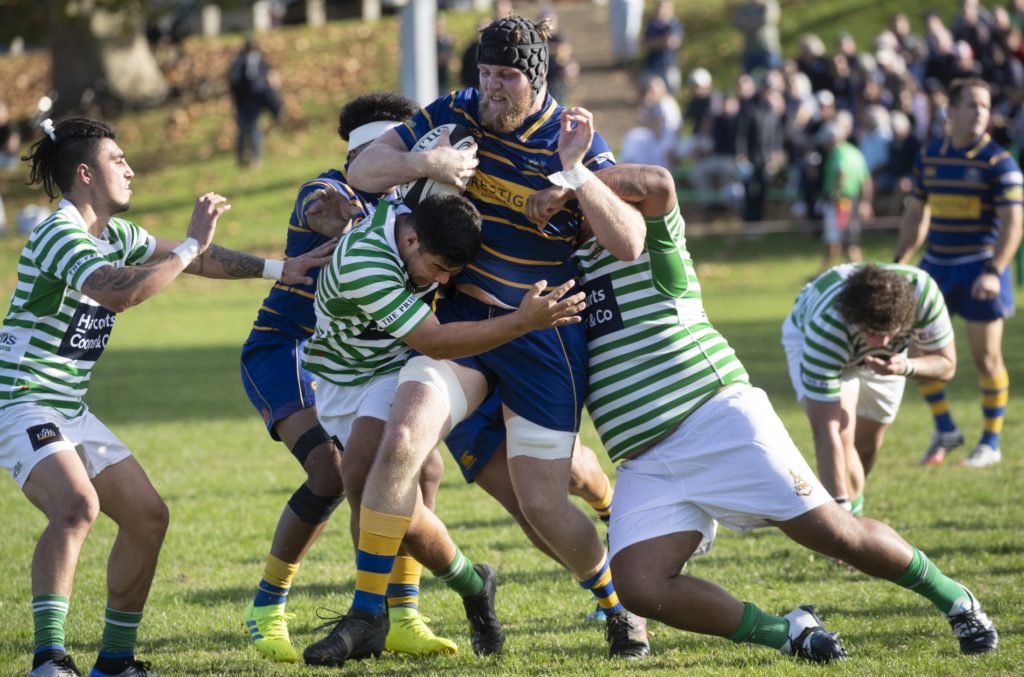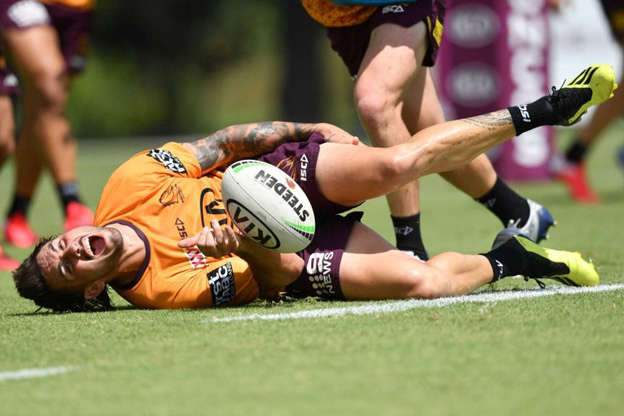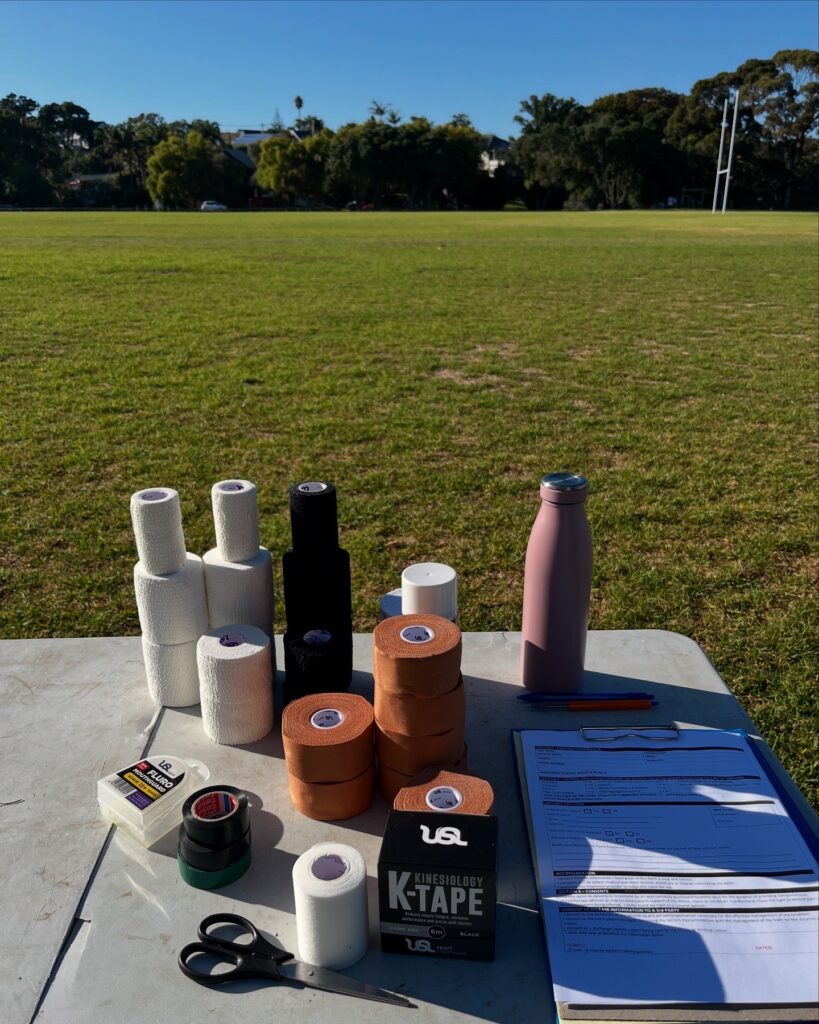
Rugby season just kicked off last week here in Aotearoa New Zealand, and players all over the country are back on the field, tackling hard and chasing wins. With the intensity of the sport comes the real risk of injuries — something we see a lot of at Good Physio. Whether you’re a weekend warrior or playing competitively, staying injury-free is key to performing at your best.
At Good Physio, we work closely with rugby players to treat, manage, and most importantly, prevent injuries so they can stay strong throughout the season.
Common Rugby Injuries
Whether you’re in the front row or sprinting down the wing, here are some of the injuries we see most often:
1. Shoulder Injuries
Tackling and falling can lead to shoulder dislocations, AC joint sprains, or rotator cuff strains. These injuries can become recurrent if not addressed properly.
2. Knee Ligament Injuries (especially ACL & MCL)
Cutting movements and tackles can strain or tear ligaments. Early diagnosis and rehab are crucial to avoid long-term instability.
3. Hamstring and Calf Strains
These usually occur during sprints or sudden accelerations. A proper return-to-play plan reduces the risk of re-injury.
4. Concussions and Neck Strains
Any suspected concussion should be treated seriously. Physios help guide players through return-to-play protocols safely.
5. Ankle Sprains
Often underestimated, ankle injuries can affect balance and speed. Strengthening and proprioception exercises are key for recovery.
What Increases Your Risk of Injury?
Certain factors can make rugby players more prone to injury. These include:
- Previous Injuries: If you’ve had an ankle sprain, shoulder dislocation, or ACL tear before, you’re more likely to re-injure that area without proper rehab.
- Poor Movement Mechanics: Imbalances or weaknesses in areas like the hips or core can overload other joints during tackles or changes in direction.
- Fatigue: Tired muscles don’t react as quickly, increasing the chance of awkward landings or poor contact technique — especially in the second half.
- Lack of Conditioning: Starting the season without enough strength, mobility, or match fitness can put extra strain on joints and muscles.
- Inadequate Warm-Up: Skipping prep or rushing into contact drills cold raises the risk of soft tissue and joint injuries.
By identifying and addressing these risk factors early, players can stay safer and more confident throughout the season.

Injury Prevention Tips for Rugby Players
Here are some simple, game-day-friendly tips I often share with players — including the North Shore RFC Women’s team — to help prevent injuries:
- Glute Activation Before Games
Do a quick set of clamshells or banded walks before warm-up. This “wakes up” the hips and protects the knees and lower back during tackles and scrums. - Ankle Taping
If you’ve had previous ankle sprains, don’t skip support. Taping can prevent re-injury, especially on soft or uneven fields. - Check Your Studs
Worn or inappropriate studs increase the risk of slipping or knee/ankle twisting. Make sure you’re using the right ones for the field conditions. - Hydrate Early, Not Just at Halftime
Dehydration affects concentration and muscle function — both are key for avoiding soft tissue injuries late in the game. - Post-Game Stretch: Calves & Quads
These muscle groups take a beating during games. Spend 5–10 minutes after each match doing light stretches to aid recovery and reduce next-day tightness. - Know Your Load
Don’t overload your week with gym, running, and back-to-back games. Recovery days are just as important as training days.

How Physiotherapy Helps
A good physio doesn’t just treat the injury — we look at the bigger picture.
✅ Accurate Assessment: We identify the true cause, whether it’s a contact injury or a movement imbalance.
✅ Hands-On Treatment: Manual therapy can reduce pain and improve mobility early on.
✅ Targeted Rehab: Tailored exercises help build strength, stability, and confidence.
✅ Injury Prevention: We educate players on warm-ups, taping, and techniques to reduce risk.
✅ Game-Ready Support: Sideline physio care, taping, and return-to-play testing keep athletes performing at their best.
Final Whistle
Whether you’re dealing with an injury or preparing for a big season, physio is here to keep you strong, mobile, and confident. At Good Physio, we bring our experience from the rugby field straight to the treatment room — so you can get back out there and play hard.
As the physio for the North Shore Rugby FC Women’s team, I see firsthand how important early treatment, proper rehab, and ongoing support are in keeping players healthy and game-ready. Whether you’re on the sideline or in the scrum, we’re here to help you stay at your best all season long. Whether you’re on the sideline or in the scrum, we’re here to help you stay at your best all season long.
Play injury-free. Play the best you can be!
